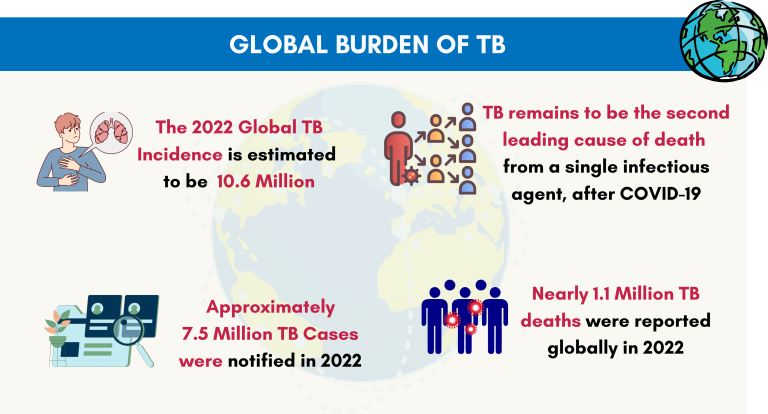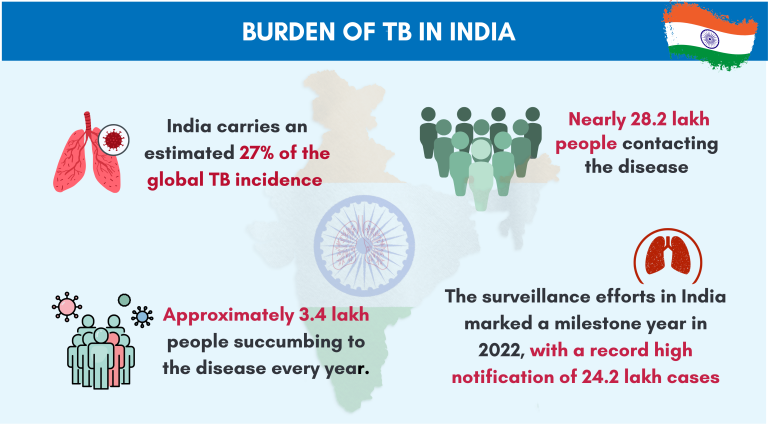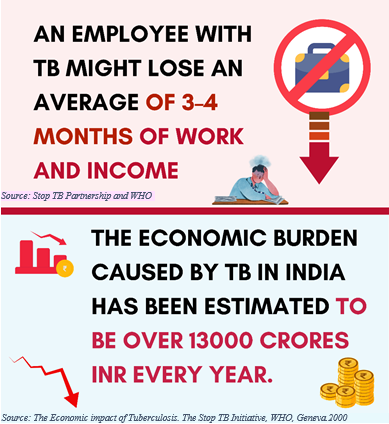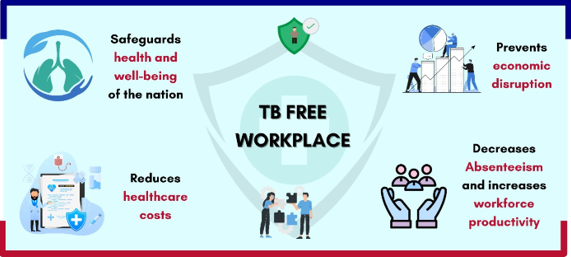Background
BackgroundAn estimated 10.6 million people fell ill with Tuberculosis (TB) globally in 20225. India carries an estimated 27% of the global TB incidence with an estimated 28.2 lakh people contacting the disease and approximately 3.4 lakh people succumbing to the disease every year. The surveillance efforts in India marked a milestone year in 2022, with a record high notification of 24.2 lakh cases.6


The National Multisectoral Action Framework for TB-Free India, which aimed at building partnerships for convergent actions for a holistic response to TB epidemic, has identified ‘TB Free Workplace’ as one of the six strategic areas for multisectoral action. Engagement of workplace settings towards a ‘TB Free Workplace’ is an effort to complement government initiatives for ending TB among the working population engaged in various occupational settings (formal and informal) through strategic interventions at workplaces.
Government of India has developed and released a ‘Policy Framework to address Tuberculosis, TB related co-morbidities and HIV in the World of Work in India’ in 2019. The overall goal of this policy framework is to provide an operational framework to all stakeholders in the world of work towards the goal of ending TB by 2025.

References:
5 Global TB Report 2023
6 India TB Report 2023
Why do we need TB Free Workplace?
Why do we need TB Free Workplace?The economic burden of TB in terms of loss of lives, income and workdays is substantial. TB usually affects the most economically productive age group of society resulting in a significant loss of working days and pushing people with TB further into the vortex of poverty due to catastrophic costs. India has more than 500 million workers, majority of whom work in unorganized sector with no or limited access to healthcare and social security. A worker with TB might lose an average of 3–4 months of work and income, resulting in potential losses of 20-30% of their annual household income. The economic burden caused by TB in India has been estimated to be over 13000 crores INR every year.7,8

The world of work can play a critical role in ending TB in India. TB epidemic leads to substantial economic repercussions for both individuals and organizations due to lost productivity, worker absenteeism and employee turnover. Employers need to assume an accountability to adopt and implement a TB Free Workplace intervention. A healthy workforce results in higher productivity making supportive workplace policies mutually beneficial for the industry and its employees. A successful and innovative TB Free Workplace model implemented by any organization, puts them in the forefront of the nation’s movement to end TB.
References:
7 Research for Action: Understanding and controlling TB in India. SEARO, WHO, New Delhi, 2000
8 The Economic impact of Tuberculosis. The Stop TB Initiative, WHO, Geneva, 2000